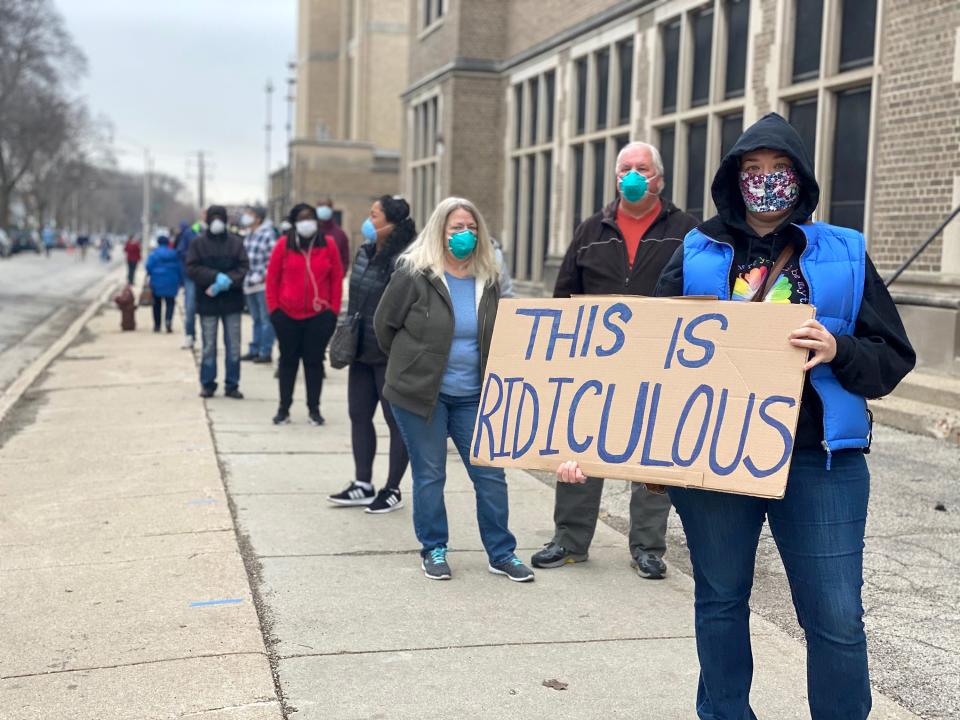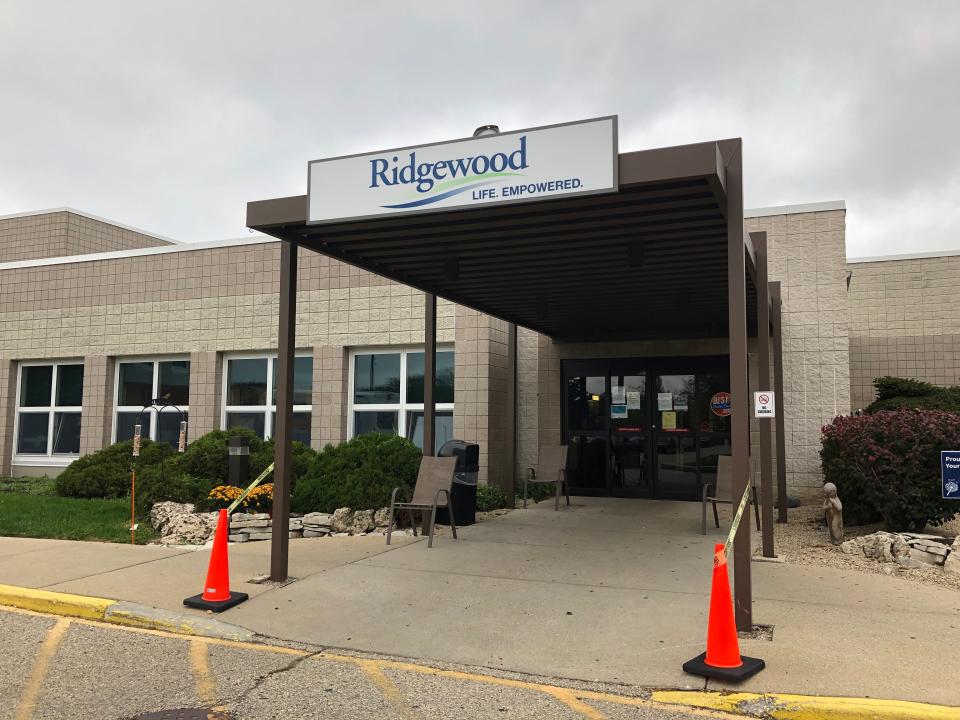Tony Evers took action on a host of election related bills. Here's what he signed and vetoed
MADISON – Democratic Gov. Tony Evers on Thursday took action on bills designed to overhaul the state's system of elections, barring abrupt closures of polling places while rejecting others that would have required elections to fill vacancies in constitutional offices and changed voting policies in nursing homes.
In all, Evers took action on 54 bills Thursday.
Here's what Evers signed and vetoed:
VETOED: Requiring elections to fill vacancies in constitutional offices
Evers vetoed a Republican-authored bill that would have required him to call special elections if a state constitutional office becomes vacant before that officeholder's term expires.
The bill would eliminate the governor's ability to fill vacancies in the offices of secretary of state, treasurer, attorney general, and state superintendent of public instruction by appointment and without confirmation of the state Senate.
The legislation was introduced in response to Evers' appointment of Sarah Godlewski as Secretary of State shortly after newly reelected Secretary of State Doug LaFollette abruptly retired.
"This bill is a purely partisan reaction," Evers said in a veto message.
VETOED: Limiting distance between ballot counters and election observers to three feet
Evers vetoed a bill that would have reduced the area between election observers and election workers from three to eight feet to no more than three feet.
Violators of the provisions under the bill could face imprisonment for up to 90 days and a fine of up to $1,000.
“Three feet is a closer distance from which the average person could read and observe all public aspects of our voting process including voters address and signature,” Bill co-author Paul Tittl, R-Manitowoc, said at a public hearing. “Eight or more feet is quite far even for those with perfect vision.”
But in his veto message, Evers said Wisconsin's existing election laws already provide "robust election security measures to ensure persons who wish to observe our elections have the opportunity to do so."
Evers said the bill increases "the potential for observers to interfere with or intimidate eligible voters casting their ballot as well as election officials performing their critical responsibilities."
SIGNED: Barring local officials from closing more than half of polling places within 30 days of an election

Under a bill Evers signed into law, closing even one polling location within 30 days of an election now requires the support of the clerk and a majority of the city council, town board or village board. Public notices are also now required for those closures, and a person would have to be stationed at the closed site to inform voters of the new site under the law. The bill was introduced in response to the chaotic April 2020 election, when City of Milwaukee officials cut their polling locations down to five in the earliest weeks of the COVID-19 pandemic.
SIGNED: Strengthening protections for election officials
Under another new law, personal identifying information of election officials is now exempt from public records requests.
The law, which takes effect in 2025, also gives election officials whistleblower protections if they report election fraud or irregularities.
It also creates a new felony crime of battery to an election official. That penalty would apply if the victim is an election official, election registration official or county or municipal clerk acting in an official capacity.
The law also makes changes to the campaign finance system, requiring local candidates to submit their reports to the Wisconsin Ethics Commission, rather than local clerks.
VETOED: Changes to voting in nursing homes and rules for incompetent voters

Evers vetoed two bills that would have overhauled how residents of nursing homes and other long-term care facilities could cast ballots, and for voters who are determined to be incompetent. The sweeping piece of legislation was introduced in response to the 2020 election, during which poll workers known as special voting deputies were barred from entering such facilities leaving residents with guidance from nursing home workers. That resulted in a number of allegations within one Racine County facility of residents with cognitive issues casting ballots, leading to an investigation by the county sheriff but no charges were issued. It is not illegal for people with mental deficiencies to vote. Only a judge can declare someone unfit to vote.
Among the provisions in the bills, nursing home officials could not bar such poll workers from their facilities in the future, except during a public health emergency. In that event, the facility must allow personal care voting assistants to help residents vote. It also barred employees of political organizations from serving as poll workers.
Evers said in a veto message he objects to "delegating important election authority and responsibilities to retirement home and residential care facility employees who have minimal training in election procedures."
He said he also objects to "creating any additional barriers that prevent eligible Wisconsinites from casting their ballot."
Under a second bill, a circuit court would be required to notify the state Elections Commission, the voter, and the voter's guardian if the voter is determined by a judge to be incapable of understanding the election process and is declared ineligible to vote.
The state elections commission would be required to change the person's status on the state's official voter list within three business days and, likewise, restore the voting status in the same time frame if a court restores the person's right to vote, among other provisions.
Evers said he appreciates portions of the bill related to voters declared incompetent but vetoed the proposal because the bill requires nursing home administrators to contact residents' emergency contacts if that person intends to vote using assistance from special voting deputies."Every eligible Wisconsinite should be able to cast their ballot without fear or interference or intimidation including aging and order adults," Evers said in a veto message. He noted state law already allows such administrators to notify residents' relatives when a resident requests absentee ballots.
VETOED: Requiring state auditors to review each general election
Evers also vetoed a bill that would require the state nonpartisan Legislative Audit Bureau to examine the administration of each general election.
The governor said he vetoed the proposal to prevent Republican lawmakers' "ongoing efforts to interfere with and usurp control" of elections and because state law already requires audits of election processes through the Wisconsin Elections Commission.
Molly Beck and Hope Karnopp can be reached at [email protected] and [email protected].
This article originally appeared on Milwaukee Journal Sentinel: Evers took action on election bills. Here's what he signed and vetoed
